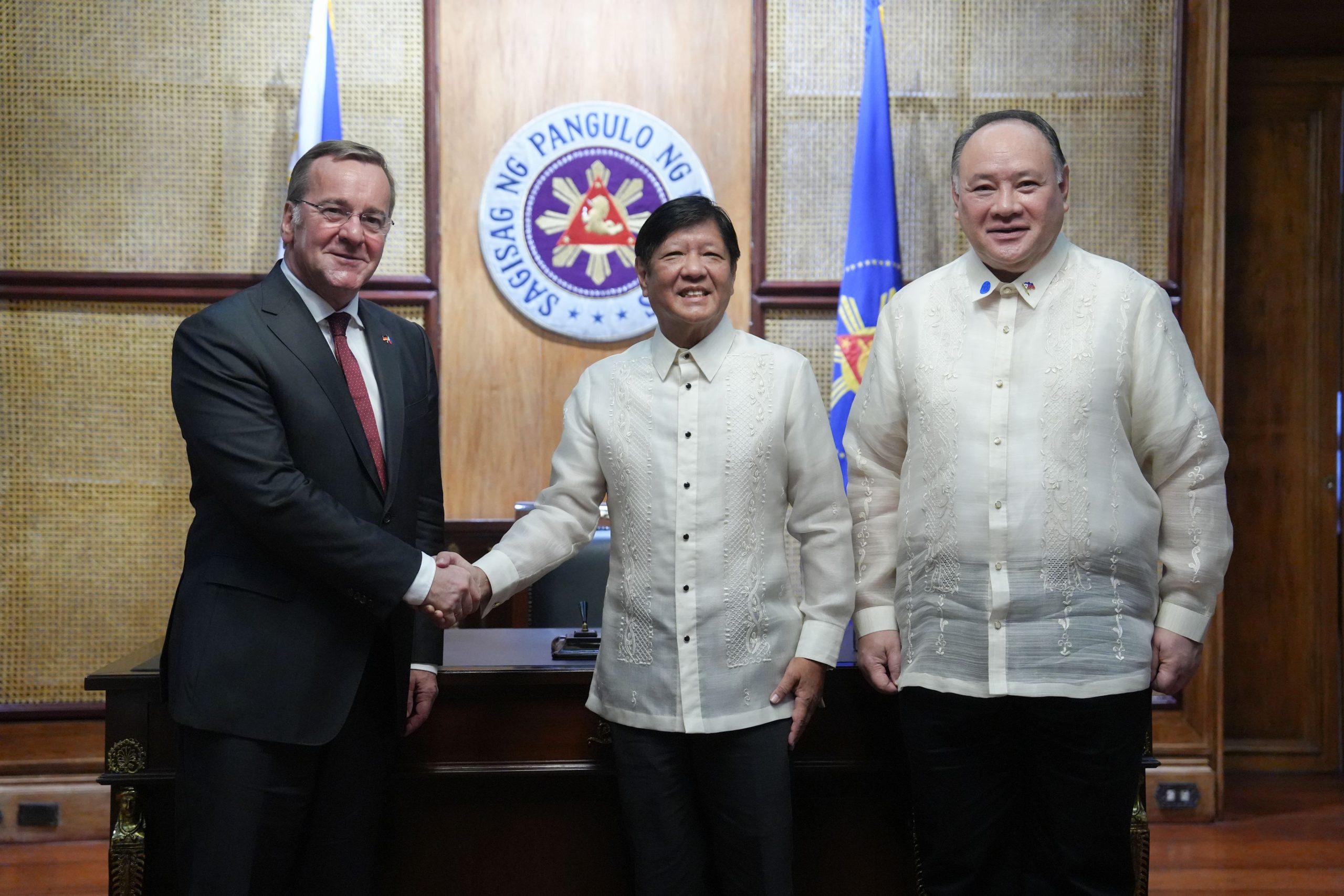
The Philippines and Germany are intensifying their defense cooperation, with both countries aiming to sign a comprehensive defense agreement by the end of the year. The move comes amidst growing regional tensions, particularly in the disputed South China Sea, and reflects a shared commitment to upholding international law and security in the Indo-Pacific region.
During a three-day visit to the Philippines, German Defense Minister Boris Pistorius met with President Ferdinand “Bongbong” Marcos Jr. and Defense Secretary Gilberto Teodoro Jr. to discuss ways to strengthen bilateral relations and address shared security concerns.
Joint Statement: A Roadmap for Enhanced Cooperation
Following a Sunday meeting between the defense ministers, a joint statement outlining the key aspects of the burgeoning partnership was released.
Expanding Armaments Cooperation and Joint Ventures
Both countries are also exploring opportunities to expand bilateral armaments cooperation. The joint statement highlighted the intent to “engage in joint projects” that would further solidify their defense partnership. This could involve joint research and development initiatives, co-production of defense equipment, or collaborative training exercises.
A Shared Vision for Regional Security
The Philippines and Germany are firmly committed to upholding international law and maintaining regional stability. Both countries view the South China Sea as a critical area of concern, with the Philippines facing increasing challenges from China’s assertive maritime claims in the region.
President Marcos has consistently emphasized the importance of international law and rules-based order in navigating the South China Sea disputes. He has also sought to strengthen partnerships with other nations to counter China’s aggressive actions.
“The partnerships are important, as well as the stability, in our case, the South China Sea and the West Philippine Sea, as we refer to it,” Marcos told Pistorius during their meeting.
Pistorius echoed the Philippines’ concerns and reaffirmed Germany’s commitment to the international tribunal ruling on the South China Sea, which declared China’s claims without legal basis.
“I could not agree more with your assessment with regard to standing together and standing together for peace and security, and for our interest, and that is the reason why we are engaging,” Pistorius emphasized.
Germany’s Indo-Pacific Deployment and Strategic Partnerships
Germany’s deepening engagement in the Indo-Pacific region is also a significant factor driving the enhanced defense cooperation. Pistorius announced that Germany will be deploying a naval task force to the Indo-Pacific region next year, further demonstrating its commitment to the region’s security.
This deployment will serve as a visible sign of Germany’s presence and commitment to upholding regional security and stability. Germany’s involvement in the Indo-Pacific also reinforces its shared vision with the Philippines of a rules-based international order.
A Key Milestone in Strengthening Bilateral Ties
The defense cooperation arrangement marks a significant milestone in the Philippines and Germany’s diplomatic relations. The two nations are celebrating 70 years of diplomatic relations this year, and the enhanced defense ties underscore their commitment to strengthening this partnership.
The deal is expected to further bolster the Philippines’ defense capabilities and contribute to the overall security architecture in the Indo-Pacific region. It also signals a growing trend of international cooperation and collaboration in addressing regional challenges and maintaining global stability.
